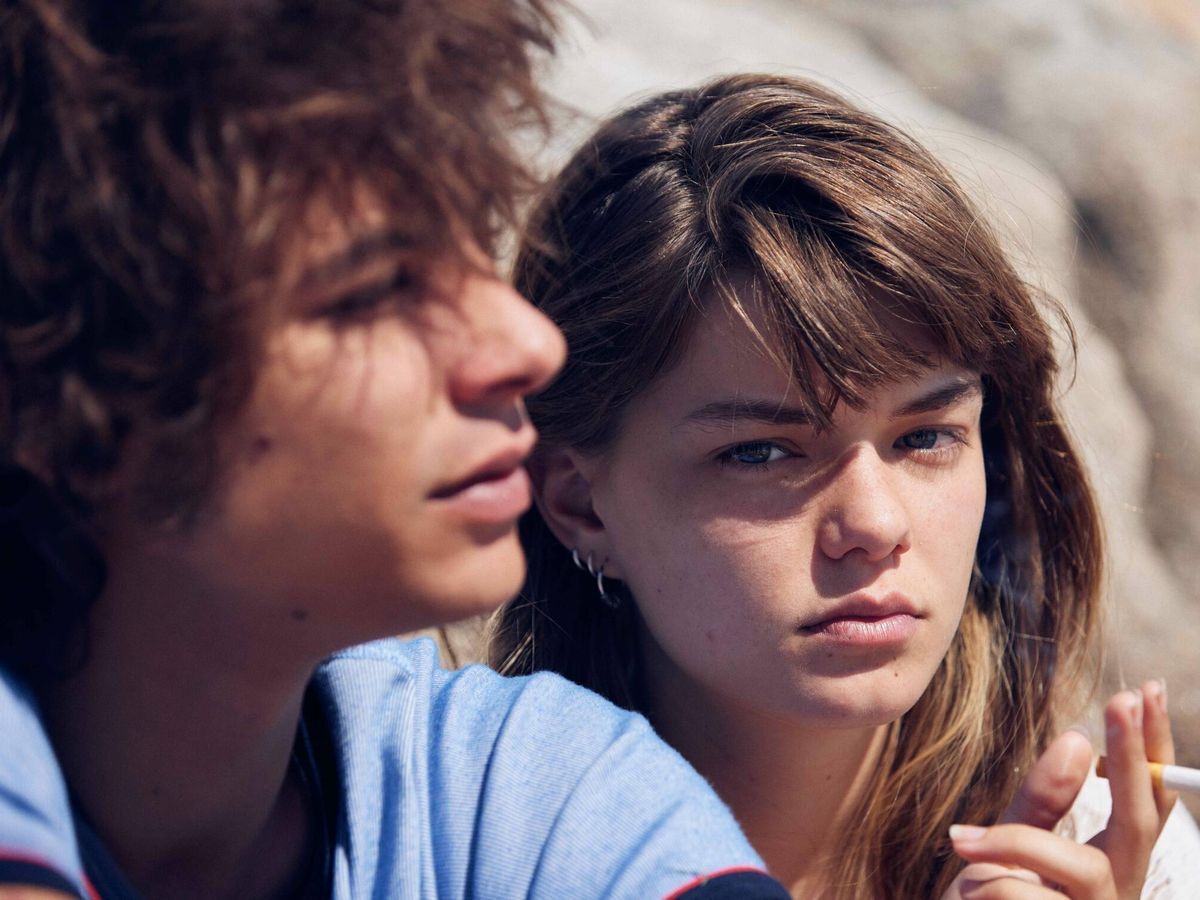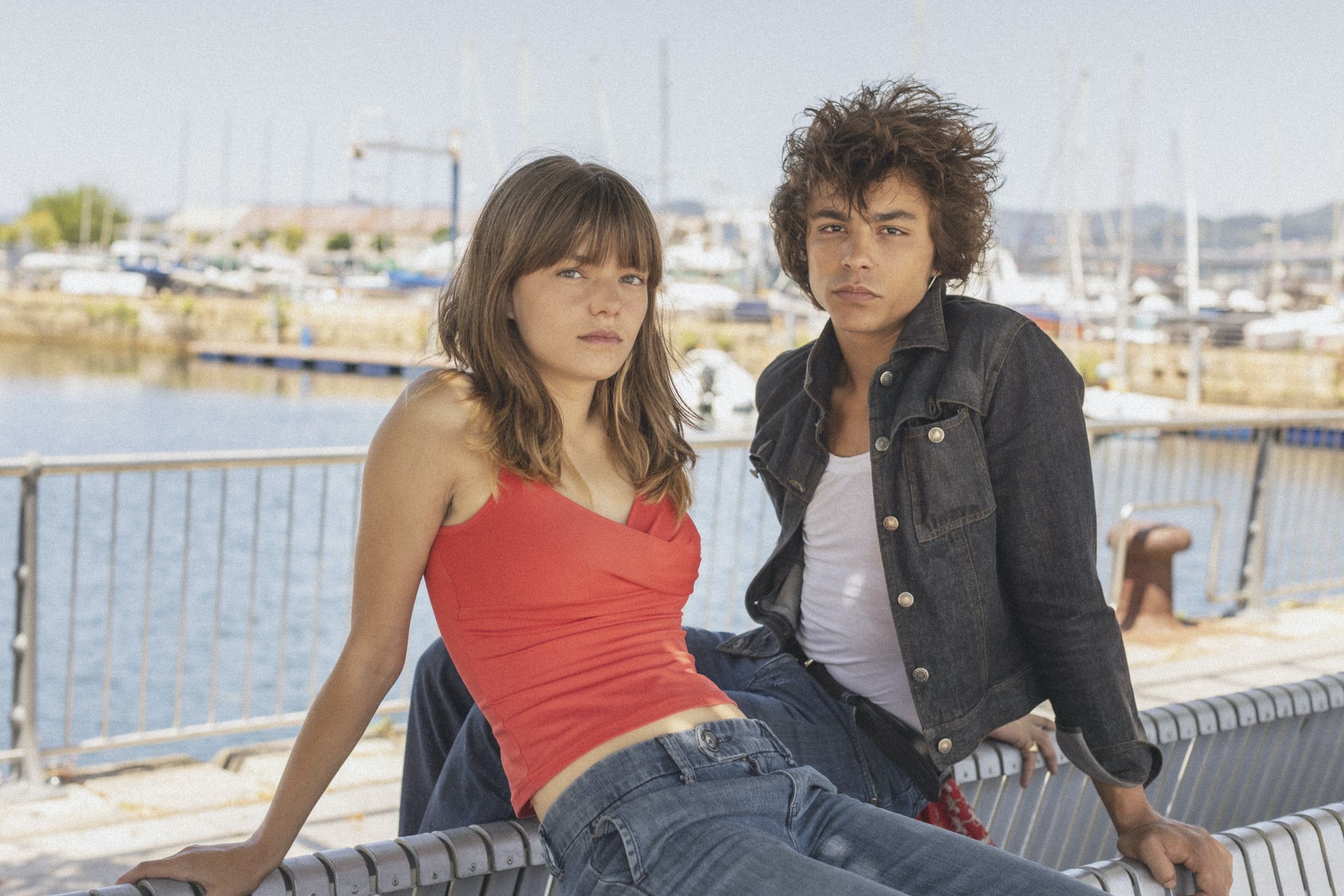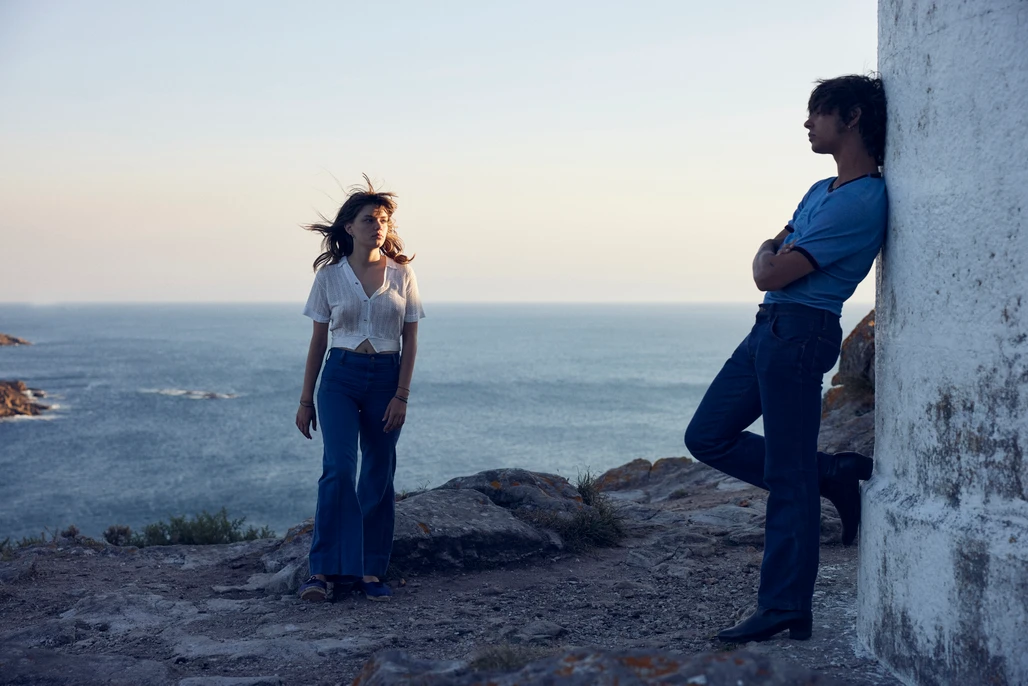Director: Carla Simón
Writer: Carla Simón
Stars: Tristán Ulloa, Sara Casasnovas, Llúcia Garcia
Synopsis: With her mother’s diary in hand, Marina’s search for official documents for university leads her to her biological family on the Atlantic coast. What starts as an administrative quest reveals long-buried family secrets.
Since her directorial debut, Summer 1993, Spanish filmmaker Carla Simón has been crafting a loose trilogy centered around family relationships and identity, where she draws inspiration from her own life to create poignant, nuanced stories that play with her memory in poetic ways. Each film covers a different time and place. Simón takes her experiences as a kid, whether in the rural area or farming region of the Catalan countryside, and sends us on a journey through remembrance, without drowning too much in the overly sentimental nostalgia trips that many directors adopt during their retellings. She looks at these moments through a new lens, capturing what might have passed her mind when younger.
The things that children don’t understand in adult situations are presented with the innocence of the kid at the center of the story and a maturity from the now older filmmaker. But the trilogy is now coming to a close. Following her excellent Golden Bear-winning Alcarràs, Simón presents Romería (screening in competition at the 2025 Cannes Film Festival), the third and final installment of this series of films about family, memory, and coming of age. Switching scenarios from the Catalan countryside to the Galician seaside towns, Simón’s latest is her most personal work, covering a period in her life that has made a mark on her–one that still hurts her to some degree. It was a period of fragmented remembering, during which portraits deemed incomplete turned into beautiful paintings.
People who were once estranged were brought back into your life to guide you during this reminiscence. Romería is set during the summer of 2004, in the town of Vigo, Galicia, and follows an eighteen-year-old girl, Marina (Llúcia Garcia, Simón’s surrogate), who travels from Barcelona to Spain’s Atlantic coast in order to get her parents’ death certificates from her biological grandparents needed for a film school grant. The scholarship Marina is applying for requires a document acknowledging her bloodline. Marina’s parents passed away from AIDS–the second film at the festival about the topic, alongside Julia Ducournau’s Alpha–during the ‘90s epidemic, hence her being taken care of by adoptive parents. Like Ducournau, Simón reflects on a time that was deeply affected by drugs and the transmission of this disease, with many people losing their loved ones via overdose, AIDS, and other related incidents.
It was a troubling time that Ducournau and Simón lived through and they felt those pains firsthand, specifically the Spanish filmmaker. But the two have different approaches to discussing the time and the people affected by it. Ducournau is broader (and more mournful) in her dissection, utilizing the collective community’s fears, melancholy, and worries to shape her story about an ostracized family. She brilliantly basks in the darkness. But Simón embraces the light that kisses the Galician terrains and coasts–the places where her parents fell deeply in love–without shying away from the coldness that emerges from the recollections of her family. The two films are polar opposites, yet connected at their hearts, with pain and resilience holding them together.
From here, very early in the film, you sense Simón’s openness; her willingness to share personal details about her youth and disconnected family has always been present in all her projects, including her shorts. However, in Romería, since it is a point in her life when she finally knew who her parents were, it feels like a topic she would’ve kept hidden previously during her early years. But now, with three feature films in her portfolio and having reconciled with all those thoughts during the filming process, she invites us to hear the complete story–completing the picture of what made her parents the people they were. Upon arrival, Marina is met with open arms from her aunts, uncles, and cousins, all happy to know everything about her.
The only person with a different approach towards her is Uncle Iago (Alberto Gracia), a sidelined member of the family who refuses to bury the past of those who have passed. Iago is the only member of this family who is willing to talk about Marina’s parents and their turmoil, like her father’s heroin addiction, which ultimately led to the contraction of the disease, and his bond with her mother. Curious as a teenager always is, Marina converses with Iago and learns the secrets that lingered in her parents’ lives. Even though they have been dead for many years, these conversations and the trip to Galicia have helped her grow closer to them–her fractured memories slowly being repaired as they unfold in a new light that shines their double-edged personalities.
Simón then plays with these retellings from Iago and the rest of the family in a fleeting manner, with tons of poetic nuances and her usual swift delicacy. From a single instance where her grandmother tells Marina that she has a keen resemblance to her mother, Simón takes the viewer from the 2000s to the ‘80s, where we see a young couple deeply in love. Those are Marina’s parents, played by Llúcia Garcia and Mitch Martin. It is a daring swing (Simón’s most daring swing in her filmmaking career, if you ask me) into the mystical, where Garcia not only is a stand-in for Simón, but her mother as well. Simón’s trust in Garcia must be enormous, as she is tasked with not only the role of playing her, but also the caretaker who left her life way too soon. Simón also has another actor playing dual roles in Mitch Martin, who plays Marina’s father (and in counterpart Simón’s) as well as her eldest cousin, Nuno.
A spectral element blossoms from these scenes of cinematic remembrance; they capture the haunting beauty of memory and time–the displacement of recollection. Using her mother’s diary as a framing device helps us navigate these moments as if it were Simón reading it for the first time. And in a festival where cinematic poetry has been vast and seen in various effective forms (Sirât, Alpha, Resurrection, Sound of Falling, amongst other excellent examples), Simón finds a way to make her wistfulness stand out in the competition and in her filmography too. As we travel from the past to the present, and vice versa, Marina connects with the rest of the family members, each revealing a small yet intricate detail about her parents. But that means that the depicted retellings do take a darker turn.
What begins as a love story from these visions later descends into addiction, where the heroin takes control of them and ultimately separates the two emotionally. Dashes of the late Carlos Saura’s Deprisa, Deprisa (Faster, Faster) are noticed in Romería not only in the story itself but in the actors’ characteristics too–Garcia and Martin resemble the two leads from the film, Berta Socuellamos Zarco and José Antonio Valdelomar, who, rather tragically, passed away from a heroin overdose. The excellent and tragic 1981 film follows Angela (Zarco) and Pablo (Valdelomar) as they fall in love and into the hands of drugs. A cinematic circle begins to shape itself, where Simón and Saura, a significant influence on her work, connect with reverence, adding an equally touching and saddening splendor that is easy to be moved by.
Like Saura, Simón takes time to talk about people succumbing to the periphery of drugs in ‘80s Spain. Although Romería does not expand on the impossibility of escape during the post-Franco urban margins as much as Deprisa, Deprisa, there is a heartfelt commentary on youth and love during a period of uncertainty. The Spanish filmmaker questions: Why do people pick and choose the stories they keep secret and decide to tell? And she comes up with Romería as an answer to such a question. What I love about the film, and Simón’s approach, is that even if this is a story based on her experiences, she concocts a universal portrait, not explicitly related to losing your parents (and the things we never knew about them), but the search for clarity and lucidity in the blurred, melancholic moments of our lives.








